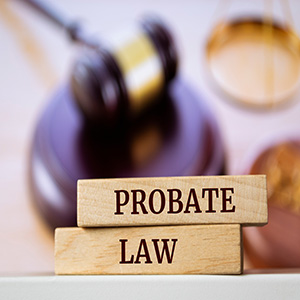
Probation is a tool used in the juvenile justice system to help kids learn and grow after a mistake. Is your child facing probation? Hopefully, we can give you some peace of mind by explaining what you can expect. What Is Juvenile Probation? Juvenile probation is a court order that allows your child to return to their normal activities under the supervision of a probation officer. In most cases, probation is an alternative to jail time but may be accompanied by fines and community service, depending on the severity of the crime. The length of time your child will be on probation will also vary depending on the crime committed. During this time, your child will have specific responsibilities and requirements that must be met. Some of these may include: School and work attendance Periodic drug testing Meetings with a probation officer Curfews Counseling or drug treatment What Happens If My Child Violates Probation? The requirements of your child's probation must be followed to avoid probation violations. Unfortunately, violations will require your child to go…Read More
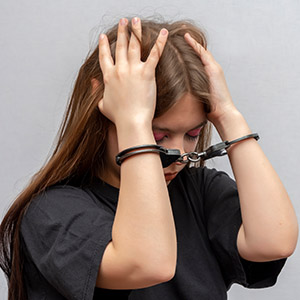
As a parent, finding out your child has potentially committed a crime can feel overwhelming. And although you may know that your next best step is to find an attorney, how do you choose when there are so many options available? First, take a deep breath—there are plenty of highly qualified juvenile attorneys out there ready to support you and your child. Here are some tips to help you find the right match. Start by Researching Attorneys in Your Area A quick online search of juvenile attorneys in your area should bring up some options. Start compiling a list of names as well as their contact information, so you have what you need to reach out later. It's also a good idea to ask trusted family members or friends for their recommendations. You can also try online attorney directories such as Justia or FindLaw. The Consultation: Questions to Ask a Juvenile Defense Attorney After compiling a list of potential attorneys, it's time to make the call. Most attorneys offer a free consultation where both of…Read More
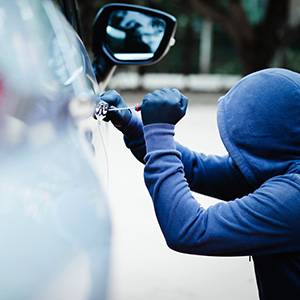
Some juvenile crimes start as innocent mistakes such as taking a quick ride around the block in mom or dad's car. Unfortunately, joyriding is a crime just like vehicle theft. Yet, there are specific differences between the two. What Is Joyriding? Unauthorized use of a motor vehicle, also known as joyriding, happens when your child operates a vehicle without consent. For example, your teen may decide to sneak out at night and take your vehicle for a quick trip with friends without your consent. Being unaware of your teen's trip, you may suspect theft and call the police. Once your teen is caught, they could be charged with a joyriding crime. Joyriding & Theft Intent The main difference between joyriding and theft is intent. Joyriding involves an individual who simply wants to borrow the vehicle with every intent of bringing it back. Theft occurs when a teen takes a car or other vehicle with the intent of keeping it. The Penalties for Joyriding vs. Vehicle Theft Another difference lies in the penalties for joyriding and…Read More

In juvenile law, there are a few crimes that are more common than others, such as possession of drug paraphernalia, petty theft and vandalism. The latter is included in criminal mischief, a specific group of offenses with its own consequences. If your child is facing a criminal mischief charge, it's important to understand what that actually means. What Is the Definition of Criminal Mischief? According to Texas law, a person commits criminal mischief if, without consent of the owner of the property, they: Intentionally damage or destroy the property Intentionally tamper with the property and cause loss or inconvenience Intentionally make markings on the property There are many types of criminal mischief. For example, your child can be charged by: Spraying graffiti on someone else's property Damaging a car by keying Entering a vacant home, warehouse or other private property Entering a school after hours or illegally Breaking the windows and doors on a vacant home or building The Consequences of Criminal Mischief in Texas The consequences of committing criminal mischief can range from misdemeanors…Read More

Electronic cigarettes, also known as e-cigarettes or vape pens, are increasingly popular. Unfortunately, many juveniles use vape pens throughout Texas. And not only are these vape pens dangerous, but they're also heavily regulated, just like other drug paraphernalia. Has your child been caught with a vape pen? If so, it's important that you understand Texas law to better prepare for what comes next. Vape Pens: Understanding the Law in Texas In Texas, the purchase, possession and use of e-cigarettes are prohibited by those under 21 years of age, unless a person is at least 18 and has a US or state military ID card. The use of e-cigarette or vapor products is also prohibited at school and before or after-school programs. This means vape pens are not to be used on the premises, playground, buses or during field trips. If your minor child is caught with a vape pen or e-cigarette used for inhaling tobacco products, the offense is punishable by a fine up to $100. Juvenile Drug Charges If traces of THC from the…Read More

You've received a call you never thought you would—your child has been caught shoplifting. Now, you might feel angry, confused, frustrated and disappointed. It's also normal to worry about the next steps your child might face with the legal system. Let us give you some peace of mind during this trying time. Juvenile Shoplifting: The First Steps First, do your best to remain calm. Your child will need your support through the process. Most shoplifting occurs on sheer impulse; the consequences aren't necessarily considered in the moment. Your child may now feel fear and guilt for committing the crime. Try to go in with a level head. Was It an Accident? Sometimes, stores will question your child based on what looked like shoplifting but was, in fact, an accident. For example, did an item slide under the shopping cart where it wasn't seen before leaving the store? When you arrive at the store location, it's important to advocate on your child's behalf. If an accident occurred, your child also must be able to explain it…Read More

Unfortunately, it's increasingly easy for a juvenile to obtain drugs such as marijuana. Even the vape pens popular with those under the legal age for purchasing cigarettes can have traces of THC inside. In Texas, law enforcement cracks down on the use of drugs and the possession of drug paraphernalia by juveniles. What Is Juvenile Possession of Drug Paraphernalia? According to the Texas Health and Safety Code, a possession of drug paraphernalia offense is committed when: “The person knowingly or intentionally uses or possesses with intent to use drug paraphernalia to plant, propagate, cultivate, grow, harvest, manufacturer, compound, convert, product, process, prepare, test, analyze, pack, repack, store, contain, or conceal a controlled substance in violation of this chapter or to inject, ingest, inhale, or otherwise introduce into the human body a controlled substance in violation of this chapter.” For a juvenile charge, the individual must be under the age of 18. Some common types of drug paraphernalia include: Vape pens Capsules Mixing decides Pipes Plastic containers (972) 546-2496 – Is your child facing a juvenile possession of drug paraphernalia…Read More

In Texas and across the country, a conversation has developed about excessive prosecution and incarceration. As a result, there is wide support for criminal justice reform, including proposals to decriminalize or legalize cannabis and end criminal prosecution and incarceration for related offenses. This conversation comes as statistics show that the violent crime rate has gone down for decades, and people are safer than potentially ever before. However, arrest rates continue to rise. Dealing with high arrest rates can be a significant concern because people may find their employment, education and housing prospects hindered by criminal arrests, charges and convictions. Most people want to have as few interactions with the police as possible and stay out of the criminal justice system. However, despite the lower crime rate, Americans are more likely to be arrested before age 26 than at any time in the past. While 6.4% of Americans born before 1949 have been arrested, that figure jumps to 23% for those born between 1979 and 1988. Because violent crime is on the decline, many of these arrests involve…Read More
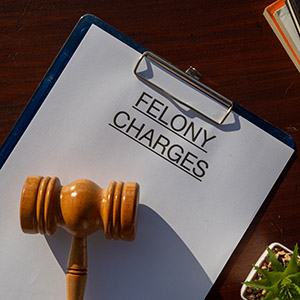
Texas residents likely think of serious crimes like murder and arson when felonies are mentioned, and they may be surprised to learn that dozens of acts that would barely raise an eyebrow also fall under this designation. Calling in sick to spend a day in front of the television is actually a felony in some situations, and making a scene in a post office is always a federal crime. This is important because the consequences of a felony conviction often continue for years after an offender is released from prison or jail. Felons are not permitted to vote in state or federal elections and are barred from owning firearms. They will also be automatically rejected if they apply for certain jobs and could even lose custody of their children. This may seem fair for a murderer or rapist, but it could be considered a little excessive for an individual whose only crime was getting lost in the woods or forgetting to put on waterproof shoes before picking up a crate of foreign primates. When the…Read More
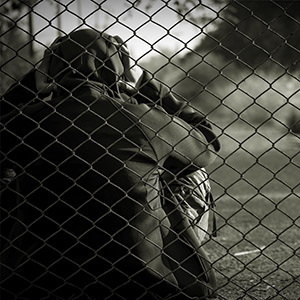
For many people in Texas, a wrongful conviction is one of their worst nightmares. With the advent of computer surveillance technology and DNA testing, many might hope that wrongful convictions are less likely than they were in the past. However, many cases, especially for more minor crimes like shoplifting, theft or drug possession, continue to rely on standard types of evidence that are particularly prone to mistake or error. According to one criminologist who studied the prison population, up to 6% of prisoners could be wrongfully jailed for crimes they did not commit. Famous DNA exonerations have drawn widespread attention to the problem of wrongful convictions. In some of these cases, police or prosecutors were corrupt or hid evidence that could exonerate the defendant. In other cases, early forensic scientists were prone to mistakes, while other false convictions simply rested upon the fallibility of eyewitness testimony. Statistics have shown that DNA has led to exonerations in 3 to 5% of convictions in capital cases like those involving murder and rape. Because of the severity of the sentences…Read More